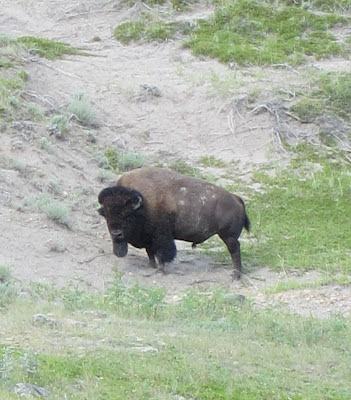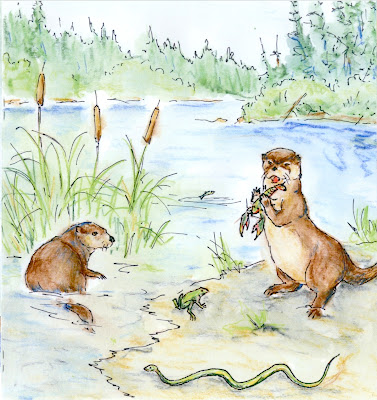Bison and meteors, moose vs. men, energy efficiency, drowning islands,
sustainable cities, and community gardens
sustainable cities, and community gardens
Energy & Climate Change
The Island President
The Island President tells the story of the president of the Maldives as he confronts rising ocean levels that could swamp his island nation. The documentary will be running at the Roxy Theatre from August 3 and is co-sponsored by the Saskatchewan Eco-Network. Elaine Wheaton will speak on climate change before the film on August 3. There will be a workshop on climate change activism following the film on August 7.
Energy Awareness/Bike Power
Small Change Fund is a crowd-funding platform that uses the power of the internet to connect charitable organizations with donors. They are currently promoting two Saskatchewan projects:
Bike Power & Bike Laundry, Core Neighbourhood Youth Co-op
Energy Awareness Saskatchewan, Saskatchewan Environmental Society
EcoFriendly Sask has donated $1,500 to each of these initiatives. Now, it's over to you to support these local initiatives.
Canada’s Poor Energy Efficiency Score
Canada finished second last – right between Russia and Brazil – on the American Council for an Energy-Efficient Economy’s scorecard, which measures the energy efficiency of 12 of the world’s largest economies.
The poor rating is primarily due to the energy-intensive resource sector and inefficient building and transportation sectors.
The report recommends various energy efficiency opportunities, including generating more electricity at industrial plants so that the leftover heat can be used in industrial processes (i.e., combined heat and power plants), energy retrofits, better building codes, increased use of transit, and better fuel economy measures.
Urban
Community Gardens
You’re invited to tour some of Saskatoon’s community gardens between 5:30 and 8:30 pm on the following evenings:
August 8 - Caswell Hill and Nutana
August 14 - Good Earth and Confederation Park
August 15 - College Park Accessible and Emmanuel Village
Directions for finding each site are available on the CHEP website.
Building Cities for the Future
Cities occupy just 2% of the Earth's land but account for over 70% of both energy consumption and carbon emissions. As a result, they represent our best chance for reducing our carbon footprint.
Sustainable Cities: Building Cities for the Future includes expert views and practical solutions on topics ranging from construction and waste management to security and disaster resilience.
Nature Volunteers
Old Man on his Back
Join Nature Conservancy of Canada volunteers in one or all of the following activities from August 10-12 at Old Man on his Back:
Bison Ranch Hands
Green Grass and Gone Weeds
Life in the Grassland Understory
You are welcome to camp on site. Meals and snacks will be provided. Enjoy the Perseid meteor showers with no light pollution.
Transportation
Moose vs. Cars
Saskatchewan is considering allowing hunters to kill more moose, fearing the animal's growing population is becoming a danger to drivers. An article in the Montreal Gazette outlines the problem, while BC’s Wildlife Collision Prevention Program suggests ways that highways can be designed in order to avoid the problem.
Share the Road
This short video outlines Colorado’s law regarding vehicles and bicycles who share the road. Car drivers are urged to only pass when it is safe and to ensure that there is 3 feet between themselves and the cyclist.
Photography + Nature
NCC’s Maymont Property
Branimir Gjetvaj joined members of the Saskatoon Nature Society on a field trip to one of the newest protected areas managed by the Nature Conservancy of Canada. His account of the day includes a number of excellent photographs.
When Science and Photography Meet
Chris Helzer, a scientist for the Nature Conservancy discusses how his love of science and photography complement one another.
EcoSask News is a weekly round-up of local news and events. Email us if you have items you would like us to include. A complete listing of all upcoming events can be found on our Calendar.
You can follow EcoFriendly Sask by liking us on Facebook, following us on Twitter, or by email (top right corner).




















